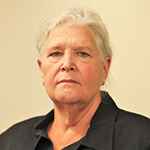Orion Technical College approved for new online programs
QCBJ News Staff
When pioneering Clinton leader LaMetta Wynn became Iowa’s first Black female mayor in 1995, President Bill and Hillary Clinton sent their congratulations from the White House.
She was contacted by news crews from Germany and the Netherlands eager “to talk to the lady from Iowa who broke down the perceived wall of non-white women holding office in the State of Iowa,” her longtime friend and dedicated…

Get immediate, unlimited access to all subscriber content and much more.
Learn more in our subscriber FAQ.
Do you want to read and share this article without a paywall?
